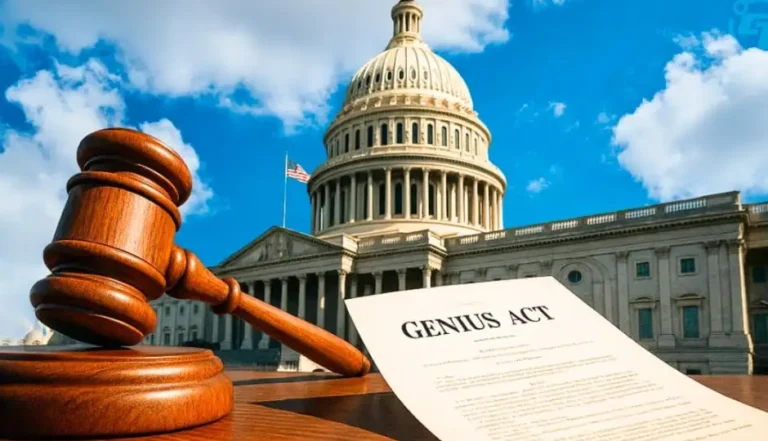
A New Chapter for Crypto Regulation Begins
The world of cryptocurrency has always moved fast—but now, Washington is finally catching up. One of the key players in this regulatory evolution is the GENIUS Act, a proposed bill that could reshape how stablecoins are issued, regulated, and used in the U.S. Backed by former President Donald Trump and championed by House Republicans, the bill is getting fresh attention after a renewed push to bring it to a vote in Congress.
What Is the GENIUS Act All About?
The GENIUS Act, short for Guarding Every Nation’s Interest Using Stablecoins, is aimed at creating clear federal rules for stablecoin issuers. If passed, it would require companies that issue dollar-pegged digital currencies to follow a strict set of standards—ensuring their tokens are safe, backed by real assets, and transparent to users.
Think of it this way: if you’re using a stablecoin like USDC or Tether, this law would make sure that digital dollar is actually backed by a physical one, and that you can redeem it at any time without fear of it collapsing.
What Does the Bill Actually Do?
At its core, the GENIUS Act is about trust and stability. Here are some of the key points:
-
Licensing: All stablecoin issuers would need to be licensed—either by state or federal regulators.
-
Backed by Real Assets: Every token must be backed 1:1 with real cash or safe liquid assets.
-
Monthly Disclosures: Issuers would be required to publish monthly reserve reports.
-
Instant Redemption: Holders should be able to convert their coins to dollars instantly.
-
Ban on Risky Stablecoins: Algorithmic stablecoins like TerraUSD, which famously crashed, would be banned unless they meet new safety criteria.
Why Is It So Important Right Now?
After the collapse of several high-profile crypto firms and the growing popularity of stablecoins in global finance, the need for regulation has become urgent. The GENIUS Act could be the United States’ first serious attempt to build guardrails around the use of stablecoins in daily life—from cross-border payments to crypto savings accounts.
Former President Trump’s vocal support has added political momentum. He sees the bill as a pro-innovation move that keeps crypto private and out of the hands of the Federal Reserve, which some worry may eventually launch a government-backed digital dollar (a CBDC) that threatens financial privacy.
Who Supports the GENIUS Act?
There’s a growing list of supporters for the GENIUS Act:
-
Crypto companies like Circle and Coinbase, who have been asking for regulatory clarity.
-
House Republicans, especially those concerned about the rise of centralized digital currencies.
-
Some moderate Democrats, who see stablecoins as useful but in need of safeguards.
And Who’s Against It?
Not everyone’s on board. Some progressive lawmakers and consumer advocacy groups argue that the bill doesn’t go far enough to protect everyday users. Others say it could limit innovation by placing too many restrictions on new types of digital currencies.
There’s also resistance from those who believe the U.S. should explore a CBDC, and that this bill is more about stopping that effort than protecting users.
Why It Matters to You
Whether you’re someone who uses crypto every day or just watches from the sidelines, the GENIUS Act matters. If passed, it could help bring crypto out of the shadows and into the mainstream—with protections that make digital dollars safer to use, invest in, and trust.
For businesses, it could open doors to legal, regulated stablecoin payments. For consumers, it could mean less risk and more peace of mind when moving money digitally.
What’s Next?
After a failed vote earlier this week, House Republicans—under pressure from Trump—say they’ve now gathered enough support to push the GENIUS Act forward. A new vote is expected soon, and if it passes, it could set the stage for America’s first federal stablecoin law.
Final Thought
In the chaotic world of crypto, the GENIUS Act could be a much-needed moment of clarity. It’s not just about regulation—it’s about making sure digital money is safe, trustworthy, and ready for the real world.
The next few weeks will be critical in determining whether this bill becomes law—or just another missed opportunity to bring crypto in line with the rest of finance. Stay tuned.






